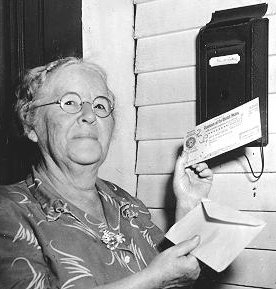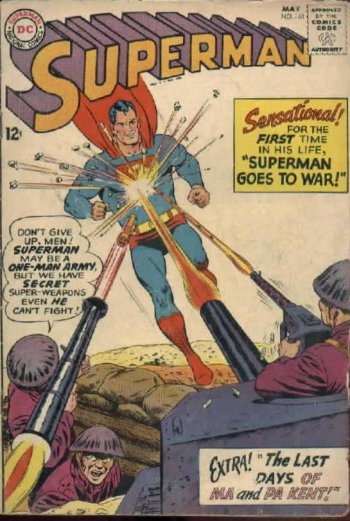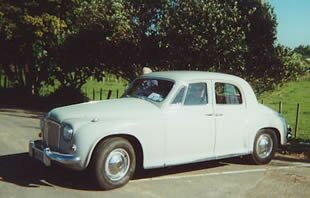January 31

1606 Death: Guy Fawkes, chief conspirator in the gunpowder plot, hung, drawn and quartered in London.

1835 In the House chamber of the US Capitol, President Andrew Jackson, the seventh president of the United States, survives the first serious attempt against the life of a US president. During a funeral service honoring the late Representative Warren R. Davis of South Carolina, a man identified as Richard Lawrence discharges two separate pistols in the direction of President Jackson. Both weapons misfire, and Lawrence is promptly subdued and arrested. During the subsequent criminal investigation, the suspect is found to be insane and is sent to a mental prison. Three decades later, President Abraham Lincoln will become the first president to be assassinated. (Bradley)
1858 The Great Eastern steamship, built by Isambard Kingdom Brunel, is launched at Millwall, London.
1865 US Civil War: Robert E. Lee is appointed commander-in-chief of the Confederate forces.

1872 Birth: Zane Grey, dentist, author; The Spirit of the Border, The Last of the Plainsmen, Riders of the Purple Sage.
1885 C.D. Wright is appointed as the first Commissioner of Labor in the United States, at a salary of $3,000.
1911 Second Reich: The German Reichstag exempts royal families from tax obligations.
1915 WW1: The Central Powers, reinforcing their armies in the east, launch a great offensive under Hindenburg in the Battle of Bolimov, a feint aimed at Warsaw to distract Russian attention. Poison gas shells are used for the first time, but are not highly effective in the freezing temperatures, and the Russians do not report the gas attack.
1917 WW1: Germany announces it is resuming unrestricted submarine warfare, stating that neutral ships, armed or unarmed, that sail into a German war zone will be attacked without warning. Note: On this same day, Max Warburg lunches at his club with Admiral Arndt von Holtzendorff, HAPAG's Berlin agent, and Foreign Minister Arthur Zimmerman. (Warburgs)
1918 In the Soviet Union, January 31 under the Julian Calendar system is the last day of its use. The next day would be February 14 under the Gregorian system, the dates in between being scrapped to correct the difference between the two. (Bradley)

1923 Birth: Norman Mailer, Pulitzer Prize-winning novelist; The Armies of the Night Miami and the Siege of Chicago, The Executioners Song, The Naked and the Dead, An American Dream.
1930 Britain, America, France, Italy and Japan begin the London Naval Conference, aimed at halting the arms race and preventing war.
1930 Lt. Ralph S. Barnaby of the US Navy becomes the first glider pilot to have his craft released from a dirigible, at an altitude of 3,000 feet.
1933 Edouard Deladier becomes premier of France.
1933 Eamon De Valera wins in Irish Free State Elections.

1934 The US dollar is devalued to 60 cents.
1937 The Danzig Senate creates a secret police force modeled on the Gestapo.
1940 Holocaust: By the end of January, the Germans have driven 78,000 Jews out of their homes in Poland. (Atlas)

1940 Ida May Fuller of Ludlow, Vermont, opens her mailbox and finds a check from the Federal government worth $22.54. Her check number is 00-000-001. Though hardly a fortune, the check is nonetheless a milestone: indeed, it is the first monthly retirement payment made under the auspices of the Social Security Act. When the act initially passed into the law books in 1935, benefits were paid out in lump sums. But, with Fuller's check, the government kicked off its program of doling out regular benefits to retired workers. For Fuller, it was simply the first in a series of payments that lasted for the next thirty-five years. Before passing away at age 100 in 1975, Fuller received regular payments totaling $22,000. (Bradley)


1942 WW2: American and Filipino forces retreat from Manila to the Bataan Peninsula in the Philippines.

1943 Stalingrad: After a week of heavy fighting, Field Marshal Paulus surrenders the German 6th Army to the Russians at Stalingrad; the worst single defeat in German military history. This happens at 19:45 hours local time and after the Univermag building has been surrounded. Vassili Chuikov's Sixty-Second Army has the honor of accepting his surrender. The northern pocket continues to fight on. (Messenger)
1944 WW2: US amphibious landings begin in the Marshall Islands.
1944 Holocaust: Dr. Ritter mentions 23,822 "conclusively 'clarified' Gypsy cases"; in a report to the DFG (the German Association for Scientific Research). (Science)
1945 WW2: Zhukov's forces reach the Oder River less than 50 miles from Berlin.
1945 WW2: The US First Army enters Germany east of St. Vith and the French First Army gains ground in Alsace near Colmar.
1945 WW2: The Czechoslovakian Government in London recognizes the Lublin Government in Poland.
1953 A sudden ‘surge,’ or wall of water, caused by a fierce storm and high spring tide, bursts through the dikes and over the banks of low-lying coastal areas of eastern England, northern Belgium and southern Netherlands. 1,800 drown in Belgium and the Netherlands. Thousands lose their homes, hundreds of animals die and farmland becomes unusable for years to come because of the North Sea’s saltwater. Only the receding waters of low tide had prevented the River Thames from flooding central London and killing thousands more, though more than 300 die in widespread floods in Kent, Essex and East Anglia. (Bradley)
1957 The Trans-Iranian pipeline from Abadan to Tehran is completed.

1958 Explorer I, the first United States Earth satellite, is launched from Cape Canaveral and put into orbit around the earth by a Jupiter-C rocket. Radio signals from the transmitter aboard the 30.8 pound satellite are picked up in California within a few minutes after the launch. Explorer I orbits the earth every 114 minutes at a maximum height of 2,000 miles and a minimum altitude of 230 miles. This event marks the beginning of discussions, debates and decisions that will lead to the formation of NASA and eventually to the creation of Saturn launch vehicles. (Bradley)
1962 The Organization of American States, meeting in Uruguay, adopts a resolution to expel Cuba.

1966 The Nam: The US resumes its bombing attacks on North Vietnam.
1968 The Nam: The Viet Cong continue (second day) the Tet Offensive against cities in South Vietnam.

1968 Nauru, jointly administered by Britain, Australia and New Zealand since WW1, becomes independent.

1971 The three-man US spacecraft Apollo 14 is launched to the moon. The astronauts land on February 5 and make two moonwalks.
1980 35 people die in Guatemala when police storm the Spanish embassy where peasants are holding the ambassador and other diplomats hostage.
1981 The 52 hostages from Iran finally make it back to US soil.
1983 US President Ronald Reagan offers to meet Soviet President Yuri Andropov to discuss a missile pact, though the offer is ultimately rejected.
1985 The final Jeep, the workhorse vehicle that became a hero of WW2, rolled off the assembly line at the AMC plant in Toledo, OH. Army chief, George Marshall, had called the Jeep, “America’s greatest contribution to warfare.” Jeep is now a trademark of Chrysler Corporation’s Jeep-Eagle Division. (Bradley)
1988 The prime ministers of Greece and Turkey agree on a 'no war' agreement while meeting at the World Economic Forum in Switzerland.
1991 Desert Storm: Allied forces recapture the Saudi border town of Khafji in the first ground battle of the Gulf war.

1994 German luxury carmaker BMW announces the purchase of Rover from British Aerospace, ending nearly a century of independent mass car production in Britain.
2001

2001

2002

2002

2003

2004

2004

2005

2005

2005

2005

2005

2005

Visit:




 Visit:
Visit:

Click Here to email the History: One Day At a Time webmaster.